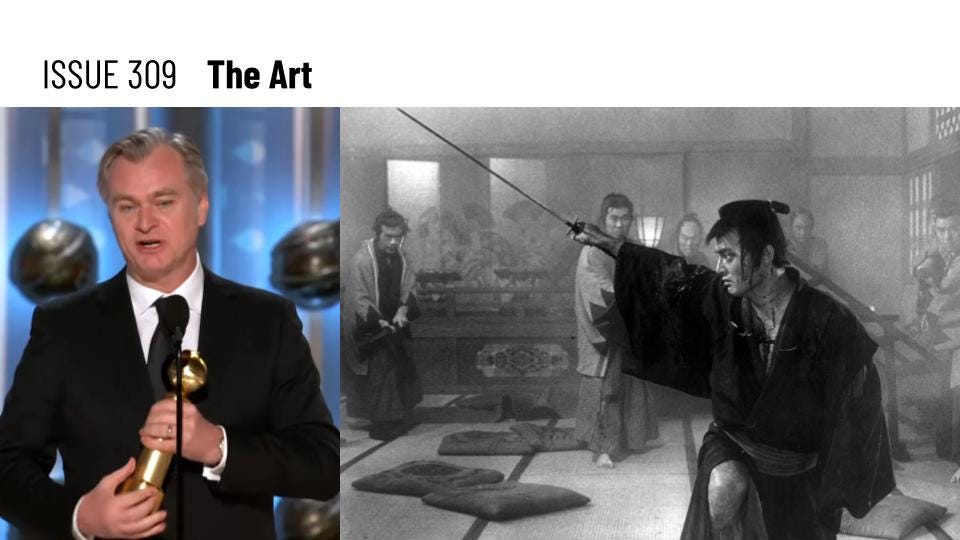Issue #309: The Art
Not to hype it up too much, but work on my Albums of 2023 feature is ongoing. I didn’t send out 2022’s until the end of last January, so you can expect it before the end of the month. As always, it’s been incredibly fun but tremendously difficult to write. This will be the last time I’ll mention it until you read it.
There’s plenty else to talk about. I…



